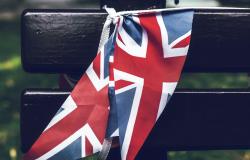Global Britain or Little Britain? We May Find Out this Week

Sam Nadel, Oxfam’s Head of Policy and Advocacy, reflects on a bad week for the UK.
Cast your mind back to December 2016. Boris Johnson, then UK Foreign Secretary, is speaking at an event at Chatham House, laying out his vision for the UK’s role in the world. Just six months earlier, the UK had voted to leave the European Union.
In the speech, Johnson argued it wasn’t in the UK’s interest to interpret the Brexit vote as a retreat into an isolationist foreign policy, and set out the three central tenets of ‘Global Britain’ as he saw it:
- that the UK should remain committed to active involvement in maintaining global stability, peace and order
- that it was the UK’s historic post-Brexit function to be the ‘leading agitators’ for free trade
- that the UK can do good for the world and for itself by projecting its values abroad.
Fast forward four years and what do we know about how well the UK government (with Johnson now at the helm) has delivered on these three principles?
It’s not going well.
The government has clearly fallen short on points one and two. Despite a big boost in defence spending announced last week, questions remain about exactly where the money will go and there has been criticisms about the decision to ramp up defence spending while other departments face swingeing cuts. The government’s resumption last summer of arms sales to Saudi Arabia, despite the humanitarian crisis in Yemen, is a blight on its humanitarian credentials. In prioritising trade negotiations with richer nations, the UK risks falling short on its commitments to tackle global poverty and climate change.
So, the government has much work to do in its efforts to promote peace and free trade. But I want to focus here on point three, the government’s commitment to projecting its values abroad, as this is where it really falls short.
It’s true that the UK faces unprecedented challenges at home and abroad. Faced with the worst public health emergency for a century, with 115 million people around the world likely to be pushed back into extreme poverty, all governments have had to reassess their priorities. In the UK, with further lockdowns and unemployment on the rise, the government has made huge investments in public health and support for business. There are difficult decisions ahead on how to recover the costs of all of this spending.
Judging by reports in the news over the past week, the government has now decided to balance the books on the backs of the world’s poorest communities.
The Chancellor looks likely to announce this week that the government will not meet its commitment to spend at least 0.7% GNI on aid - dropping the target to 0.5% GNI for the next year. This despite it being enshrined in law in 2015 and a manifesto commitment last year to retain the target. The cut would mean a reduction in aid of around £5bn a year.
The rumours haven’t gone down well with two former Prime Ministers (on different sides of the political divide) who warned the move would jeopardise Britain’s ‘soft power’ status. Yet, none of this is necessarily a surprise. The Prime Minister has long been a sceptic of the 0.7% aid target, having previously endorsed a Henry Jackson Society report that called for multibillion pound cuts.
You might argue that failing to meet 0.7% in the teeth of a pandemic is reasonable. But there is already flexibility built into the aid budget as it is tied to Gross National Income (so expands and contracts with the size of the economy). The government already recouped nearly £3bn of cuts in aid earlier in the year. If that sounds like a lot of money, it is – amounting to as much as the UK’s bilateral aid spend on health (£1.4bn) and humanitarian crises (£1.5bn) in 2019.
The broader point is that continuing to provide support for the world’s poorest through a global crisis doesn’t have to come at the expense of supporting those at home. Indeed, fighting the virus abroad will be key to the UK’s own future stability. As we’ve repeatedly heard, none of us will be safe until everyone is safe.
What makes these rumours further confounding is the recently announced huge increase in spending on weapons and soldiers (‘defence’) of £5.3bn a year. This shows that when the government wants to find the money for certain areas, it can.
The government will publish its long-awaited Integrated Review of foreign, defence, security and development policy early next year. Oxfam called the review an opportunity to deliver a more coherent, values-based approach to foreign policy. But the fact that these announcements on aid and defence spending have come before the review, indicate these decisions aren’t based on any kind of strategic logic, but are about gaining short-term political wins after a difficult few months for the government.
This all comes after a string of other announcements that see the government going in the wrong direction. In September it merged the world-leading DFID with the Foreign Office, despite evidence from other countries that have done the same, such as Australia or Canada, that this can threaten both the quantity and quality of aid. DFID’s hard-won global leadership on development is now under real threat.
The new department also recently announced the it would become a ‘reserved’ department, meaning it will not be hiring foreign nationals in the UK. ‘Global Britain’? Doesn’t look like it.
2021 will be a big year for the UK on the world stage, as it hosts both the G7 and the COP26 climate conference. The UK has positioned itself as a leader on climate, outlining just last week its Ten Point Plan for a Green Industrial Revolution. It is also expected to set a high bar on emission reductions for other countries as it prepares to submit its own national plan on future carbon emissions.
So why then would it choose now, a time of global crisis, to slash the aid budget? It sends a message to other world leaders (including President-elect Joe Biden) that the UK can’t be relied on to keep its promises and deliver on its commitment for “Global Britain to be a force for good in the world“.
There’s still time for the Prime Minister to live up to his commitments at the Chatham House speech in 2016, starting with keeping the 0.7% aid target intact. Let’s hope he does, so we can have something closer to Global Britain than Little Britain.
Sam Nadel, Oxfam’s Head of Policy and Advocacy.
This first appeared on From Poverty to Power.
Photo by Artem Beliaikin from Pexels


